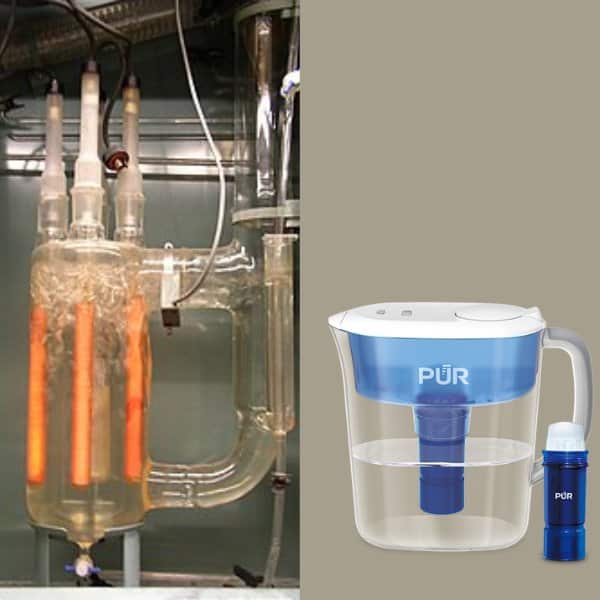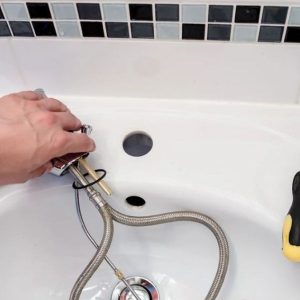Distiller vs. Water Filter
Distillation and water filtration are two popular methods used to purify drinking water. Both techniques have unique advantages and disadvantages, making it difficult for consumers to choose between them.
Distillation is when impurities are removed from water by boiling it and then condensing the steam into pure water. This method removes almost all contaminants, including bacteria, viruses, chemicals, and minerals. However, distillation can be quite slow and energy-consuming compared to other purification methods. Moreover, drinking distilled water may not be suitable for regular use as it lacks essential minerals that are beneficial for human health.
Water filtration systems use technologies such as activated carbon filters or reverse osmosis membranes to remove impurities from drinking water. While these systems are more efficient than distillation, their filters should be replaced regularly.
What is a Water Distiller?
A water distiller is a device that removes impurities and contaminants from water by boiling it and then condensing the steam into pure, drinkable water. The distillation process involves heating the water to its boiling point, which causes it to turn into steam. This steam rises and passes through a cooling chamber, condensing into liquid form, leaving any impurities or contaminants behind. Here, you can check out water distiller reviews.
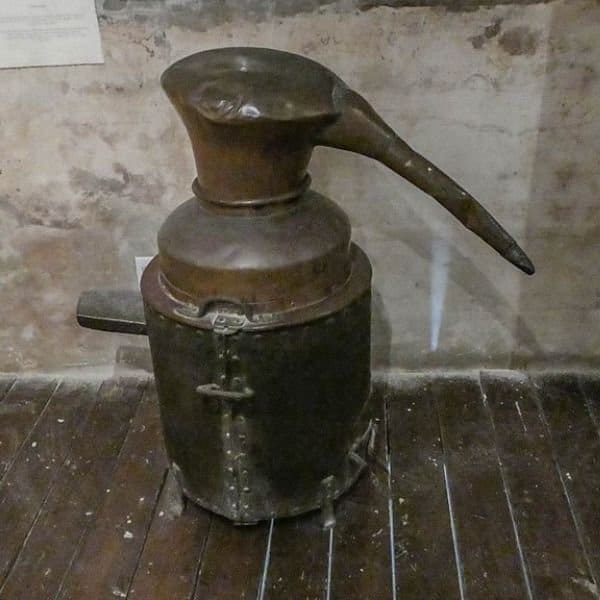
Pros and Cons of Water Distillers
Water distillers are becoming increasingly popular among health-conscious individuals who want to ensure they drink clean, pure water.
Pros
One of the biggest advantages of using a water distiller is that it removes almost all impurities from the water. This includes minerals, chemicals, and other contaminants that may be present in tap water. By removing these unwanted substances, a water distiller can help improve the quality of your drinking distilled water.
Cons
Although the process of water distiller sounds appealing, several cons must be considered before investing in one.
Firstly, distillation removes all minerals from the water, which can lead to a lack of essential nutrients in the body. Additionally, many people find that distilled water has an unpleasant taste due to its lack of natural minerals. Moreover, distilled water is acidic with a pH below 7, which can be harmful if consumed frequently over time.
Another major drawback of using a water distiller is its slow purification process. Distilling one gallon of water typically takes several hours, making it inconvenient for those who require purified water on demand. Furthermore, the initial cost and maintenance costs associated with owning a distiller may not make it financially feasible for some individuals or families.
What is a Water Filter?
A water filter is a device that removes impurities and contaminants from water. It uses a physical or chemical process to trap particles, bacteria, and other substances that can affect your water’s taste, smell, or appearance. Water filters are essential for improving tap water quality in homes, offices, or public spaces.
Water filters can be classified based on their filtration mechanisms, such as physical filtration, chemical filtration, and biological filtration. Physical filtration involves removing large particles from the water through a barrier or medium. Chemical filtration involves treating the water with chemicals like chlorine to kill bacteria and viruses present in the water. Biological filtration uses natural substances like activated carbon to absorb impurities from the water.
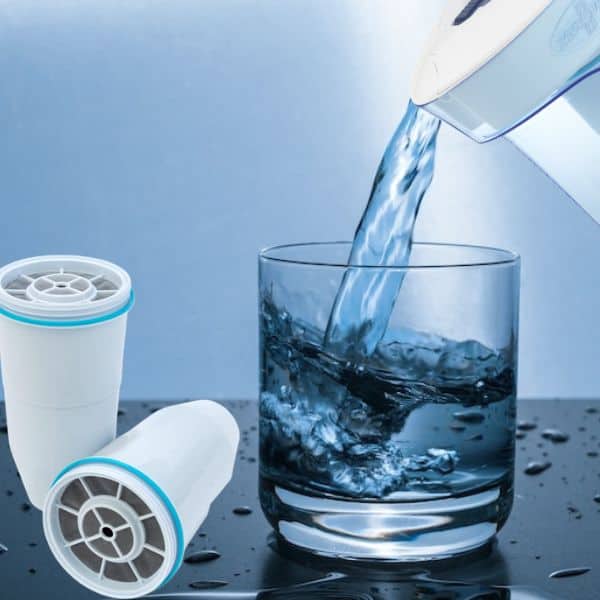
Types of Water Filters
Water filters are essential in maintaining good health and consuming clean and safe drinking water. Various types of water filters are available in the market, each with unique features and capabilities. Here, we’ll explore some of the most common types of water filters.
Activated carbon filters
Firstly, activated carbon filters are one of the most popular options. They use activated carbon to remove impurities such as chlorine, sediment, volatile organic compounds (VOCs), and other chemicals from your water supply. These filters do not remove minerals or additives like fluoride but work well for improving taste and odor reduction.
Reverse Osmosis (RO) systems
Secondly, reverse osmosis (RO) systems produce pure drinking water by forcing tap water through a semi-permeable membrane that removes impurities such as heavy metals, bacteria, viruses, and other contaminants.
Ultraviolet (UV) systems
Third, Ultraviolet (UV) systems use UV light to destroy waterborne pathogens such as bacteria and viruses, making them an excellent option for removing contaminants from water.
Pros and Cons of Water Filters
Water filters are becoming increasingly popular, and for a good reason. They offer numerous benefits to both your health and the environment. Whether you’re drinking it or using it in daily activities like washing dishes or showering, filtered water can provide a variety of advantages.
Pros
Firstly, water filters can improve the taste and odor of tap water by removing impurities such as chlorine, sediment, and bacteria. The resulting clean and clear water will be more enjoyable to drink and enhance the flavor of foods that require cooking with water.
Secondly, using a filter ensures that you’re consuming clean and safe drinking water without any contaminants that may harm your health over time. This is especially important for those with compromised immune systems or lives in areas with poor-quality tap water. Lastly, installing a filter system is more environmentally friendly than purchasing bottled water regularly.
Cons
Some cons need to be considered before investing in a water filter.
Firstly, water filters can be costly to purchase and maintain. The initial expense of purchasing a high-quality water filter can range from hundreds to thousands of dollars, depending on the type and brand selected.
Although water filters are designed to remove contaminants from tap water, they may not eliminate all harmful substances. Some chemicals, such as fluoride, cannot be removed by standard filtration methods; therefore, consumers need to research what specific substances their chosen filter can effectively remove.
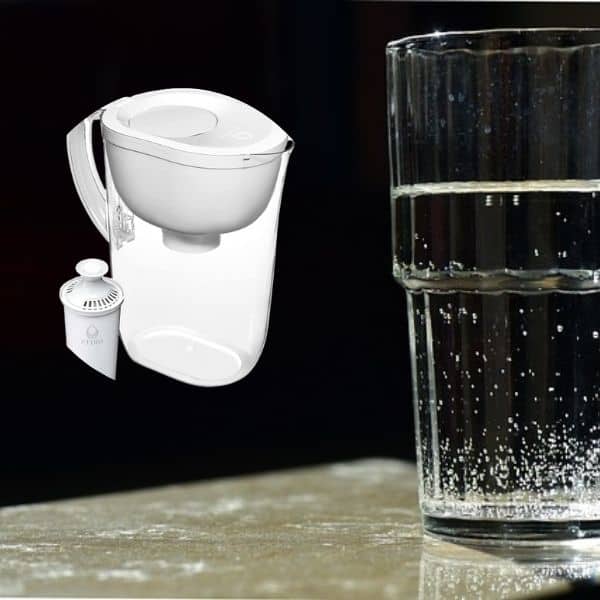
Distiller or Water Filter: Which is Better?
Both options are designed to purify your drinking water and remove impurities, but there are some key differences between the two.
A distiller works by boiling water until it becomes steam, then cools back into liquid form. This process removes impurities such as bacteria, viruses, minerals, and chemicals from the water. Distilled water has a very high level of purity and is free from most contaminants that might be present in tap or well water. However, since this process removes all minerals from the water, it may not be suitable for drinking on a long-term basis.
On the other hand, a filter works by capturing impurities and sediment as the water passes through a membrane. This method leaves behind beneficial minerals often removed in the distillation process, making it more suitable than distilled water for long-term use.
Factors to Consider When Choosing Between Water Distiller or Water Filter
When it comes to choosing between a water distiller and a water filter, there are several key factors that you should consider.
Water quality
If you live in an area where tap water is heavily contaminated with harmful chemicals and bacteria, then investing in a high-quality water distiller might be your best bet. This device effectively removes impurities from your drinking water by boiling it and condensing the steam into pure H2O. With this method, you can eliminate most contaminants, including lead, arsenic, chlorine, fluoride, and other toxic substances commonly found in tap water.
On the other hand, if your water source is relatively safe and free of harmful chemicals, then a water filter might be the better option. This way, you can get fresh, filtered water at a much lower cost.
Water production
This refers to the water you need for your household or business. Understanding your water consumption needs will help determine which option works best for you.
Water distillers remove impurities from water by boiling and condensing it into steam, then collecting the condensed vapor in a separate container. This process removes minerals, bacteria, and other contaminants from the water.
However, it is less efficient than a filter when quickly producing large amounts of clean drinking water. Water filters use activated carbon or other materials to trap impurities in the water as it passes through them. They are generally quicker than distillers but may only remove some contaminants.
Ease of use and maintenance
Water distillers work by boiling water, collecting steam, and then condensing it into liquid form. This process can provide you with clean drinking water, but it requires regular cleaning to prevent mineral buildup in its components, affecting its efficiency over time.
In contrast, water filters use various technologies to remove impurities from your tap water. Certain contaminants will be removed from your drinking water depending on the type of filter you choose – carbon filters or reverse osmosis systems.
Budget
Budget is one of the main factors that you should consider. Water distillers can be costly because they require a high volume of electricity or gas for the boiling process. They also produce waste in the form of mineral buildup within the system that needs regular cleaning.
On the other hand, water filters use various technologies, such as activated carbon or reverse osmosis, to remove impurities from the water through physical or chemical processes. Filters generally cost less than distillers upfront and require less maintenance overall.
Conclusion
It is important to weigh the pros and cons of distillers versus water filters when considering the best for your needs. Distillers may provide pure water but require more energy and are more expensive than filters. Water filters are more cost-effective, but some pollutants may still make it through. Ultimately, deciding which one is better depends on individual preferences and needs.
